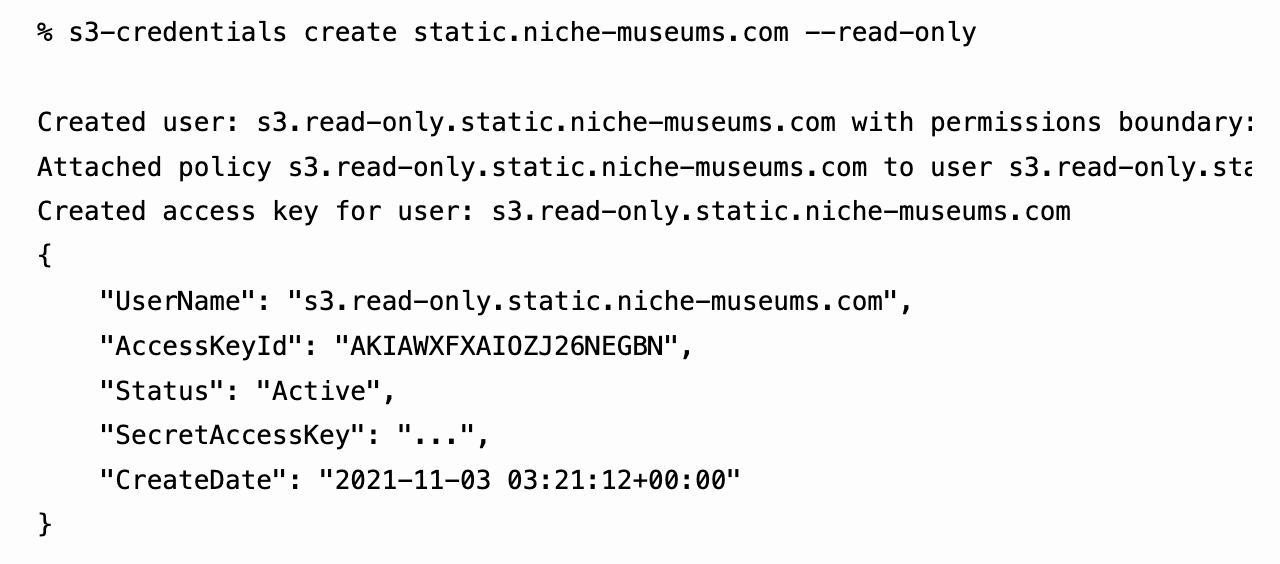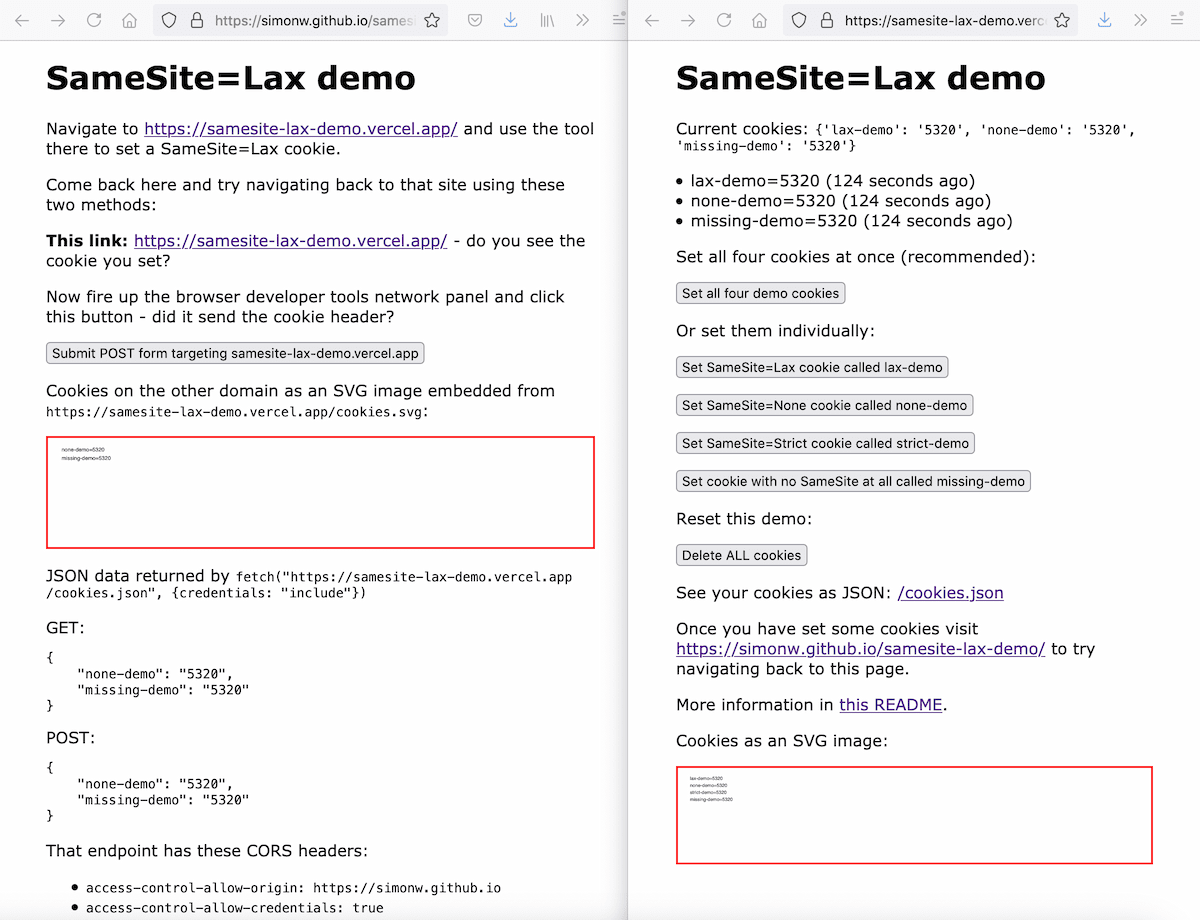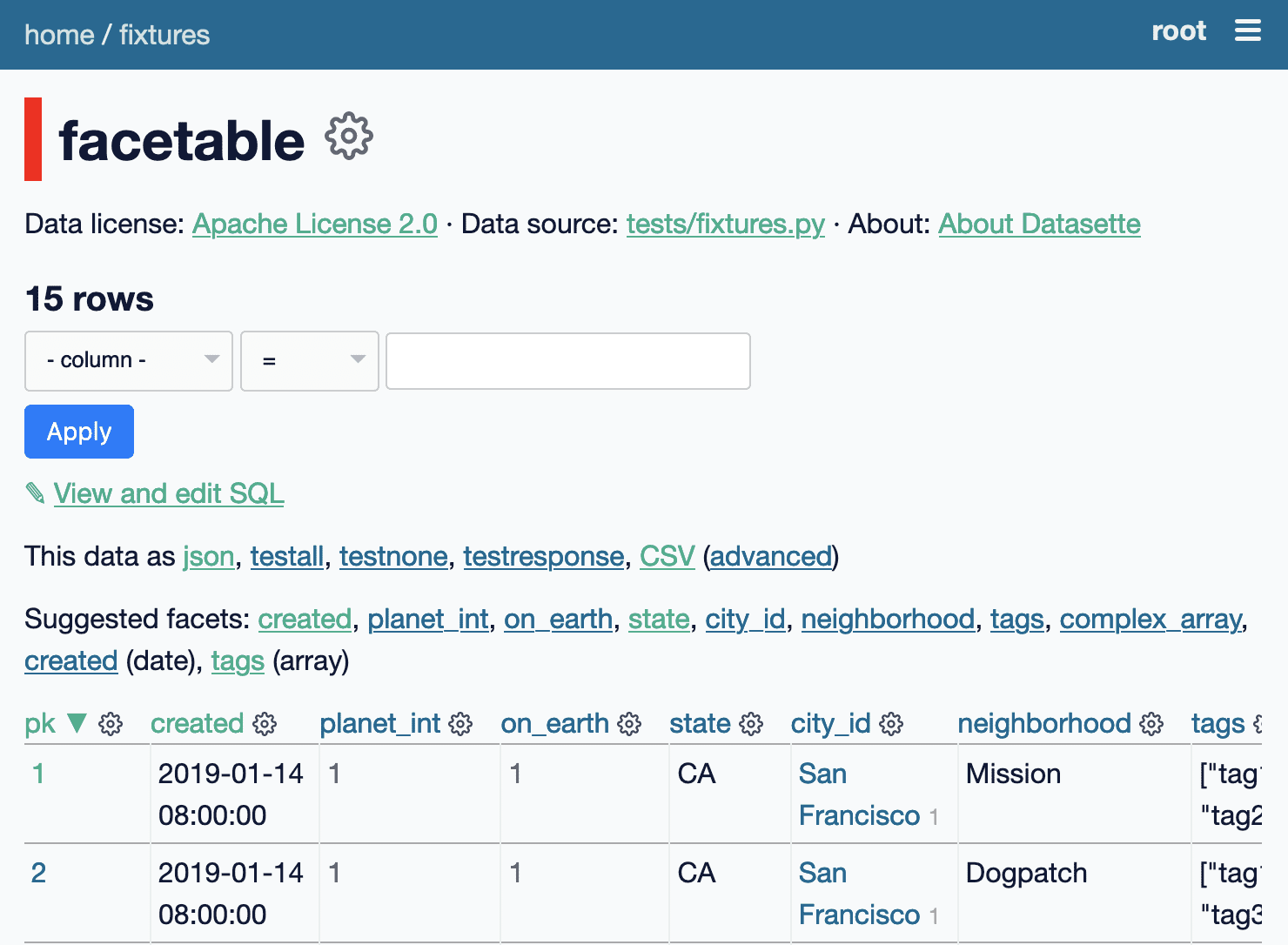567 posts tagged “security”
2021
A deep dive into an NSO zero-click iMessage exploit: Remote Code Execution (via) Fascinating and terrifying description of an extremely sophisticated attack against iMessage. iMessage was passing incoming image bytes through to a bunch of different libraries to figure out which image format should be decoded, including a PDF renderer that supported the old JBIG2 compression format. JBIG2 includes a mechanism for programatically swapping the values of individual black and white pixels... which turns out to be Turing complete, and means that a sufficiently cunning “image” can include a full computer architecture defined in terms of logical bit operations. Combine this with an integer overflow and you can perform arbitrary memory operations that break out of the iOS sandbox.
s3-credentials: a tool for creating credentials for S3 buckets
I’ve built a command-line tool called s3-credentials to solve a problem that’s been frustrating me for ages: how to quickly and easily create AWS credentials (an access key and secret key) that have permission to read or write from just a single S3 bucket.
[... 1,618 words]How to win at CORS (via) Jake Archibald’s definitive guide to CORS, including a handy CORS playground interactive tool. Also includes a useful history explaining why we need CORS in the first place.
New tool: an nginx playground. Julia Evans built a sandbox tool for interactively trying out an nginx configuration and executing test requests through it. I love this kind of tool, and Julia’s explanation of how they built it using a tiny fly.io instance and a network namespace to reduce the amount of damage any malicious usage could cause is really interesting.
API Tokens: A Tedious Survey. Thomas Ptacek reviews different approaches to implementing secure API tokens, from simple random strings stored in a database through various categories of signed token to exotic formats like Macaroons and Biscuits, both new to me.
Macaroons carry a signed list of restrictions with them, but combine it with a mechanism where a client can add their own additional restrictions, sign the combination and pass the token on to someone else.
Biscuits are similar, but “embed Datalog programs to evaluate whether a token allows an operation”.
MDN: Subdomain takeovers (via) MDN have a page about subdomain takeover attacks that focuses more on CNAME records: if you have a CNAME pointing to a common delegated hosting provider but haven’t yet provisioned your virtual host there, someone else might beat you to it and use it for an XSS attack.
“Preventing subdomain takeovers is a matter of order of operations in lifecycle management for virtual hosts and DNS.”
I now understand why Google Cloud make your “prove” your ownership of a domain before they’ll let you configure it to host e.g. a Cloud Run instance.
I stumbled across a nasty XSS hole involving DNS A records. Found out today that an old subdomain that I had assigned an IP address to via a DNS A record was serving unexpected content—turned out I’d shut down the associated VPS and the IP had been recycled to someone else, so their content was now appearing under my domain. It strikes me that if you got really unlucky this could turn into an XSS hole—and that new server could even use Let’s Encrypt to obtain an HTTPS certificate for your subdomain.
I’ve added “audit your A records” to my personal security checklist.
Exploring the SameSite cookie attribute for preventing CSRF
In reading Yan Zhu’s excellent write-up of the JSON CSRF vulnerability she found in OkCupid one thing puzzled me: I was under the impression that browsers these days default to treating cookies as SameSite=Lax, so I would expect attacks like the one Yan described not to work in modern browsers.
OkCupid had a CSRF vulnerability
(via)
Good write-up of a (now fixed) CSRF vulnerability on OkCupid. Their site worked by POSTing JSON objects to an API. JSON POSTs are usually protected against CSRF because they can only be sent using fetch() or XMLHttpRequest, which are protected by the same-origin policy. Yan Zhu notes that you can use the enctype="text/plain" attribute on a form (introduced in HTML5) and a crafty hidden input element with name='{"foo":"' value='bar"}' to construct JSON in an off-site form, which enabled CSRF attacks.
Beginning in M94, Chrome will offer HTTPS-First Mode, which will attempt to upgrade all page loads to HTTPS and display a full-page warning before loading sites that don’t support it. Users who enable this mode gain confidence that Chrome is connecting them to sites over HTTPS whenever possible, and that they will see a warning before connecting to sites over HTTP. Based on ecosystem feedback, we’ll explore making HTTPS-First mode the default for all users in the future.
Probably Are Gonna Need It: Application Security Edition (via) Jacob Kaplan-Moss shares his PAGNIs for application security: “basic security mitigations that are easy to do at the beginning, but get progressively harder the longer you put them off”. Plenty to think about in here—I particularly like Jacob’s recommendation to build a production-to-staging database mirroring solution that works from an allow-list of columns, to avoid the risk of accidentally exposing new private data as the product continues to evolve.
Weeknotes: New releases across nine different projects
A new release and security patch for Datasette, plus releases of sqlite-utils, datasette-auth-passwords, django-sql-dashboard, datasette-upload-csvs, xml-analyser, datasette-placekey, datasette-mask-columns and db-to-sqlite.
[... 861 words]Reflected cross-site scripting issue in Datasette (via) Here’s the GitHub security advisory I published for the XSS hole in Datasette. The fix is available in versions 0.57 and 0.56.1, both released today.
M1RACLES: M1ssing Register Access Controls Leak EL0 State. You need to read (or at least scan) all the way to the bottom: this security disclosure is a masterpiece. It not only describes a real flaw in the M1 silicon but also deconstructs the whole culture of over-hyped name-branded vulnerability reports. The TLDR is that you don’t really need to worry about this one, and if you’re writing this kind if thing up for a news article you should read all the way to the end first!
Over the past several months, everyone in the industry who provides any kind of free CPU resources has been dealing with a massive outbreak of abuse for cryptocurrency mining. The industry has been setting up informal working groups to pool knowledge of mitigations, communicate when our platforms are being leveraged against one another, and cumulatively wasting thousands of hours of engineering time implementing measures to deal with this abuse, and responding as attackers find new ways to circumvent them.
— Drew DeVault, SourceHut
Why you shouldn’t use ENV variables for secret data (via) I do this all the time, but this article provides a good set of reasons that secrets in environment variables are a bad pattern—even when you know there’s no multi-user access to the host you are deploying to. The biggest problem is that they often get captured by error handling scripts, which may not have the right code in place to redact them. This article suggests using Docker secrets instead, but I’d love to see a comprehensive write-up of other recommended patterns for this that go beyond applications running in Docker.
Behind GitHub’s new authentication token formats (via) This is a really smart design. GitHub’s new tokens use a type prefix of “ghp_” or “gho_” or a few others depending on the type of token, to help support mechanisms that scan for accidental token publication. A further twist is that the last six characters of the tokens are a checksum, which means token scanners can reliably distinguish a real token from a coincidental string without needing to check back with the GitHub database. “One other neat thing about _ is it will reliably select the whole token when you double click on it”—what a useful detail!
How we found and fixed a rare race condition in our session handling. GitHub had a terrifying bug this month where a user reported suddenly being signed in as another user. This is a particularly great example of a security incident report, explaining how GitHub identified the underlying bug, what caused it and the steps they are taking to ensure bugs like that never happen in the future. The root cause was a convoluted sequence of events which could cause a Ruby Hash to be accidentally shared between two requests, caused as a result of a new background thread that was introduced as a performance optimization.
The SOC2 Starting Seven (via) "So, you plan to sell your startup’s product to big companies one day. Congratu-dolences! [...] Here’s how we’ll try to help: with Seven Things you can do now that will simplify SOC2 for you down the road while making your life, or at least your security posture, materially better in the immediacy.
How to secure an Ubuntu server using Tailscale and UFW. This is the Tailscale tutorial I’ve always wanted: it explains in detail how you can run an Ubuntu server (from any cloud provider) such that only devices on your personal Tailscale network can access it.
Dependency Confusion: How I Hacked Into Apple, Microsoft and Dozens of Other Companies (via) Alex Birsan describes a new category of security vulnerability he discovered in the npm, pip and gem packaging ecosystems: if a company uses a private repository with internal package names, uploading a package with the same name to the public repository can often result in an attacker being able to execute their own code inside the networks of their target. Alex scored over $130,000 in bug bounties from this one, from a number of name-brand companies. Of particular note for Python developers: the --extra-index-url argument to pip will consult both public and private registries and install the package with the highest version number!
2020
How Shopify Uses WebAssembly Outside of the Browser (via) I’m fascinated by applications of WebAssembly outside the browser. As a Python programmer I’m excited to see native code libraries getting compiled to WASM in a way that lets me call them from Python code via a bridge, but the other interesting application is executing untrusted code in a sandbox.
Shopify are doing exactly that—they are building a kind-of plugin mechanism where partner code compiled to WASM runs inside their architecture using Fastly’s Lucet. The performance numbers are in the same ballpark as native code.
Also interesting: they’re recommending AssemblyScript, a TypeScript-style language designed to compile directly to WASM without needing any additional interpreter support, as required by dynamic languages such as JavaScript, Python or Ruby.
datasette-graphql 1.2 (via) A new release of the datasette-graphql plugin, fixing a minor security flaw: previous versions of the plugin could expose the schema (but not the actual data) of tables in databases that were otherwise protected by Datasette’s permission system.
Security vulnerability in datasette-indieauth: Implementation trusts the “me” field returned by the authorization server without verifying it. I spotted a critical security vulnerability in my new datasette-indieauth plugin: it accepted the “me” profile URL value returned from the authorization server in the final step of the IndieAuth flow without verifying it, which means a malicious server could imitate any user. I’ve shipped 1.1 with a fix and posted a security advisory to the GitHub repository.
Ok Google: please publish your DKIM secret keys (via) The DKIM standard allows email providers such as Gmail to include cryptographic headers that protect against spoofing, proving that an email was sent by a specific host and has not been tampered with. But it has an unintended side effect: if someone’s email is leaked (as happened to John Podesta in 2016) DKIM headers can be used to prove the validity of the leaked emails. This makes DKIM an enabling factor for blackmail and other security breach related crimes.
Matthew Green proposes a neat solution: providers like Gmail should rotate their DKIM keys frequently and publish the PRIVATE key after rotation. By enabling spoofing of past email headers they would provide deniability for victims of leaks, fixing this unintended consequence of the DKIM standard.
Hunting for Malicious Packages on PyPI (via) Jordan Wright installed all 268,000 Python packages from PyPI in containers, and ran Sysdig to capture syscalls made during installation to see if any of them were making extra network calls or reading or writing from the filesystem. Absolutely brilliant piece of security engineering and research.
Datasette 0.51 (plus weeknotes)
I shipped Datasette 0.51 today, with a new visual design, plugin hooks for adding navigation options, better handling of binary data, URL building utility methods and better support for running Datasette behind a proxy. It’s a lot of stuff! Here are the annotated release notes.
[... 2,020 words]Writing the code to sign data with a private key and verify it with a public key would have been easier to get correct than correctly invoking the JWT library. In fact, the iOS app (which gets this right) doesn’t use a JWT library at all, but manages to verify using a public key in fewer lines of code than the Android app takes to incorrectly use a JWT library!
Datasette 0.46 (via) I just released Datasette 0.46 with a security fix for an issue involving CSRF tokens on canned query pages, plus a new debugging tool, improved file downloads and a bunch of other smaller improvements.
Pysa: An open source static analysis tool to detect and prevent security issues in Python code (via) Interesting new static analysis tool for auditing Python for security vulnerabilities—things like SQL injection and os.execute() calls. Built by Facebook and tested extensively on Instagram, a multi-million line Django application.


